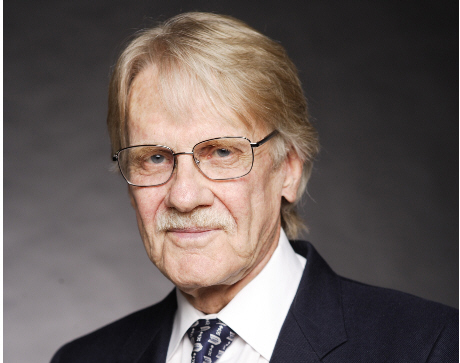
1.) You are “not a conservative or a liberal or a libertarian.” When did you first come across Austrian School economics?
As a Harvard graduate student. Alvin Hansen was very eclectic, and assigned reading on Austrian business cycle theory. Also, Gottfried Haberler was at Harvard; his Prosperity and Depression was assigned by Hansen, and I took the Haberler/[Wassily W.] Leontief seminar.
2.) Besides economists David Hume, Paul Samuelson, Sidney Siegel, and Friedrich Hayek, who – predecessors or contemporaries – influenced your thinking?
Richard Howey, an economic thought scholar at University of Kansas. As a thought scholar he knew French, Italian, German, English and mathematics, the tools needed to do original work in the history of economic thought.
3.) Instructors today perform renditions of your experiments in their classrooms. Market simulations reflect real-world scenarios, whereas textbooks cannot always do the same. Are you pleased seeing such practical applications?
Experiments changed the way I thought about markets and economics and its relevance to on-the-ground processes of adjustment and adaptation. The S&D [supply-and-demand] experiments help you to understand the stability of non-durable goods and services markets; asset markets help you to see why re-trade-able durables contribute to economic instability as in housing markets using what Adam Smith would have called too much of other people’s money.
4.) Deciphering complex economic principles is oftentimes problematic. How have you and your colleagues gone about messaging to lay audiences?
By simply noting that S&D works like a miracle in markets for non-durables like hamburgers, haircuts and hotel rooms! But badly in housing markets going back to the 1920s, where it is much harder to get the property rights (rights to take action) of individuals compatible with stable growth in human economic betterment.
5.) Regulatory dictates adversely affect consumer costs. Weighty industries (electric power, postal mail, etc.) are heavily burdened by government meddling. Should America privatize these entities?
If it is done right. In electric power, New Zealand and Australia, building on the experience of mother England and lab/field application experiments based on their particular parameters led to success. But they were government owned, and their treasuries were hurting, making it easier to liberalize and to rely more heavily on markets. In the United States we goofed badly in California. Generally we have liberalized ok at the FERC [Federal Energy Regulatory Commission] transmission level but it is hard to penetrate the states where entrenched utility interests fight their protected rates of return and shift risk-taking to consumers. They oppose liberalization for the same reasons that the airline industry opposed it. Yet transportation (a non-durable) deregulation under [former president Jimmy] Carter was a spectacular success, but the attempt to extend that success to financial markets (re-trade-able things) was not well-informed. I do not think anyone understood how that might have been pulled off in a way that would have assured doing more good than harm. On the postal monopoly, I would just let free entry by UPS, FedEX, etc., take the business, stop subsidizing junk mail, etc. Eventually just phase it out.
Quotations
“Doing experimental economics has changed the way I think about economics. There are many reasons for this, but one of the most prominent is that designing and conducting experiments forces you to think through the process rules and procedures of an institution.”
–Vernon Smith, Prize Lecture
“No one can consistently apply rational logical principles to everything he or she does; if there are cognitive costs in every application then the effort cost will often exceed the benefits.”
–-Vernon Smith, Prize Lecture
Books (select)
- Discovery – A Memoir
- Rationality in Economics: Constructivist and Ecological Forms
- Bargaining and Market Behavior: Essays in Experimental Economics
- Papers in Experimental Economics
- Rethinking Housing Bubbles: The Role of Household and Bank Balance Sheets in Modeling Economic Cycles
Learn More about Vernon Smith
- Wikipedia entry
- Mercatus Center bio
- Nobel Prize autobiography
- Nobel Prize lecture
- Chapman University profile
People & Topics Mentioned
- Alvin Hansen
- Austrian business cycle theory
- Gottfried Haberler
- Prosperity and Depression: A Theoretical Analysis of Cyclical Movements
- Wassily W. Leontief
- David Hume
- Paul Samuelson
- Sidney Siegel
- Friedrich Hayek
- Richard Howey
- Experimental economics
- Supply-and-demand experiments
- Adam Smith
- Federal Energy Regulatory Commission
- Deregulation under Jimmy Carter
- Postal monopoly